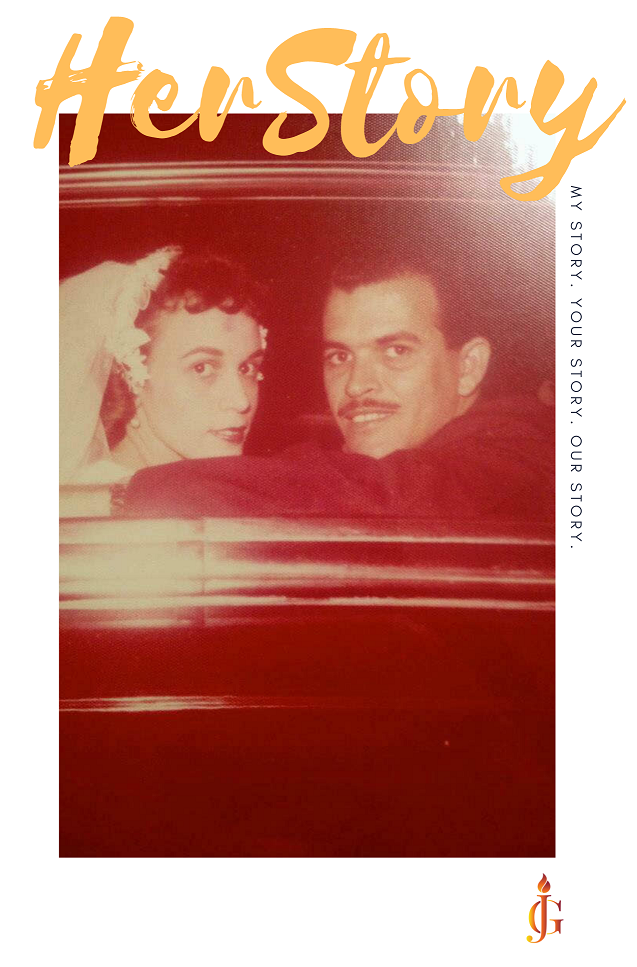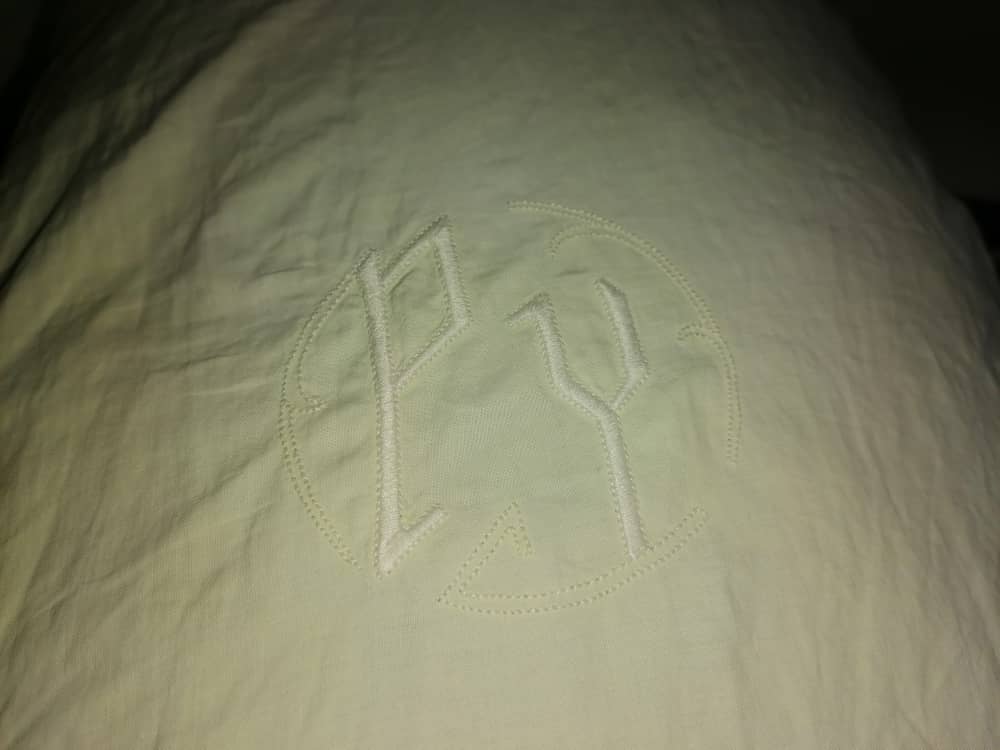17 Sep Ships, Planes and Pillowcases

By Margarita Sarmiento
When I was growing up, we had a nickname for my mom, Sanitaria. I was thinking about that just the other day, as I was putting together a bag of clothes to take to The Salvation Army.
Let me back up. I’m Cuban. My family left Cuba in 1962 during the formation of the current communist regime, which has now lasted almost 63 years.
My parents were married two weeks before Castro overthrew Batista and life forever changed. They left Cuba two months after their third wedding anniversary, with a one- and two-year-old. I grew up hearing the stories of their final hours in a country they would always claim as home, where they would never be allowed to return. Stripped of their citizenship and national identity, they boarded a ship leaving behind passports, birth certificates, academic degrees, health records and family memorabilia. They were allowed to take one change of clothes for any children under six and diapers for those under two, but that was all. We were strip-searched (yes, even the babies) to ensure nothing—not even a peso—was smuggled out. Homes and property of all Cubans had already been confiscated by the government, but this was the final shot. The message was clear: “If you want to leave, go. But you will take nothing with you, save for the clothes on your back.”
I won’t go into the next few chapters of our story—initially immigrating to Colombia, South America, where my sister was born then eventually coming as immigrants into the United States. I will say that my mother experienced the lesson of leaving things behind and starting life over—more than once.
So, let’s get back to the nickname: Sanitaria. There is no literal translation for this word in English. In Spanish the context used here is “a person who cleans or sanitizes; one who declutters or clears away.” You see, the moment my mother left Cuba—and with each move afterwards—she determined not to allow herself to become attached to material things. This determination manifested itself in a few ways. The initial years of our life here in the United States we lived as true immigrants, depending on the kindness of strangers and receiving hand-me-downs from friends and church members. But at our house there was a rule: If something new (to us) came in, something went out.
Sanitaria: “New pair of shoes? Which ones are you giving away?” And “New toys at Christmas? Time to clean out the toy box.”
As we became more established in this country and were able to buy new things, the rule still applied (although it was a little harder for her to control as we got older, as evidenced by my shoe collection!). My mom put together a donation bag of clothes for League of Mercy every month, and oftentimes they would come to our house to pick it up. On occasion my sister or I would be looking for an item of clothing and Mami would say, “Oh, I hadn’t seen you wear that in a while, so I put it in last week’s bag!” Sanitaria strikes again!
Things didn’t sit around our house unused very long; even a cup of coffee sitting on the table too long would end up in the sink being washed. We joked that if you were drinking something you better keep it in your hands or you might lose it…Sanitaria on the prowl!
My mother passed in 2006. But her influence is still felt. Remember that bag of clothes destined for The Salvation Army, I mentioned?
In recent years, the situation between the United States and Cuba has shifted, creating opportunities for Americans to visit Cuba. For those of us who came here seeking political asylum it is tricky, as conditions can change daily. My intent is not to make this political, as I am not a politician nor do I want to be, but just to share my personal experiences and perspective.
I have a lot a family who are still in Cuba. My mother left behind her parents and seven siblings; my father, his parents and nine siblings. They also said goodbye to countless nieces, nephews, aunts, uncles and friends.
It has been emotionally challenging for me to see and hear from friends who have visited Cuba in the past few years. The stories and pictures of the restaurant where they had their first cafecito or smoked their first Cuban cigar in Cuba. The stunning beaches they visited and the lovely people that welcomed them with open arms. You see, I know that as wonderful as those experiences are, these are not the experiences of my family.
Those restaurants and clubs that my friends visited and enjoyed have been off-limits to the people of Cuba who have had food, clothing, and even cars rationed to them by the government for more than 60 years. Those beautiful beaches and nostalgic vistas are also off-limits. I have family that live near one of the most impressive beaches in the world yet are not allowed to go there—and their children have never been.
The Cuba that is seen and felt by countless tourists from all over the world is an illusion, a Disney World of sorts, created by the Cuban government. Those nostalgic cars from the late ’50s and early ’60s are not there because there exists an overabundance of vintage car collectors in La Habana. They are there because that’s all they have, and newer cars have not been available to the Cuban people since those cars came off the assembly line.
But Cuba is not Disney World. There are real people trying to survive behind the carefully orchestrated and mapped out tourist experience. They use, reuse, purpose and repurpose items that they have no way of replacing. There is no “new” in Cuba, just “new to me.” As we have seen, in recent weeks the lack of medical resources and food have pushed people to fight back.
I am not saying all this to make anyone feel bad about visiting or for looking forward to visiting, Cuba. I’m simply sharing a different perspective that may add a new layer to your experience. In some ways I love hearing my friends fall in love with a country I left as a baby and have only experienced through the stories of my parents’ generation, a generation that is all but gone.
One final story, if I may. Recently my brother received a picture (below) from the son of one of my cousins in Cuba. He and his wife were gifted a new (to them) set of sheets. These sheets were given to him by his father, who had received them from his mother (my aunt), who had received them from her mother (my grandmother). He thought my brother would like to see a picture of the embroidered pillowcases. You see, these much-used and well-preserved sheets were a wedding gift to my parents. Their initials, P & Y, are still clearly detailed on the pillowcases. My mom left them with her mother, planning to come back one day to claim them. Oh, how Sanitaria would have loved to know how much they’ve been used!

For more HERStory information, join our private Facebook group and follow us on Facebook, Twitter, Instagram and LinkedIn. Never miss a new HERStory, subscribe to the monthly newsletter.
We want to hear your story. Your story is my story. Help us empower other women by sharing your story.

Margarita Sarmiento is an award-winning, international trainer & speaker, certified leadership coach, author and principal at ITK Consultants. Margarita is a native of Cuba, a naturalized citizen of the United States and an admirer of different cultures, traditions and perspectives. She loves her crazy Cuban-American family.

No Comments